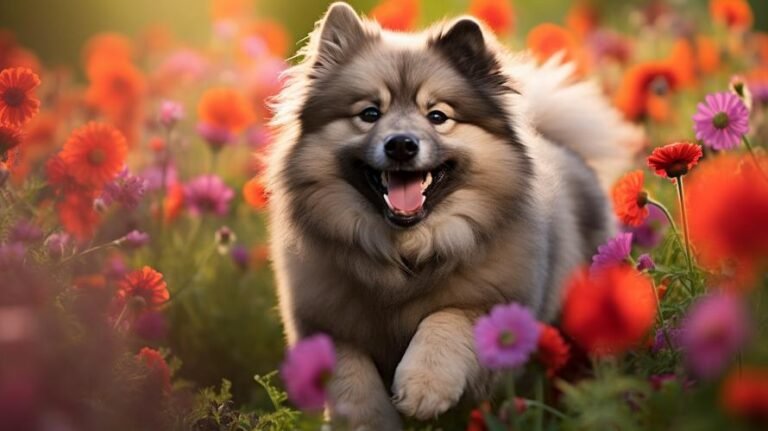Did you know that your adorable fluffy Keeshond might be hosting a secret sensitive stomach? As a matter of fact, given their genetic line, there’s a higher likelihood that your Keeshond could have certain food sensitivities compared to other breeds. One common dietary element linked to several canine digestive issues is – you guessed it – grains. So, does that mean we ought to chuck out grains altogether from our pet’s diet? Let’s dive into the nitty-gritty of grain-free diets for Keeshonds.
Keeshonds are notable for their striking gray coat and friendly disposition. Originating from the Netherlands, these medium-sized dogs are known for their unquestionable loyalty towards their families. Though hardy and energetic, their genetic predisposition makes them vulnerable to certain health issues, including those associated with their diet. It’s essential to be mindful of their dietary needs to ensure they lead a healthy and vibrant life.
Grains, such as wheat, corn, soy, and rice, have been staples of dog food for many years – partly because they’re cheap to produce, and partly due to their high carbohydrate content, which is beneficial for fuelling the boundless energy of our furry friends. However, some dogs reveal adverse reactions to grains. These reactions can manifest in various ways, including itchy skin, recurring ear infections, and disruptive gastrointestinal issues.
Interestingly, a study carried out by BMC Veterinary Research highlighted the strong genetic association between certain breeds and a higher vulnerability to food sensitivities. These breeds include Boxer, Cocker Spaniel, Springer Spaniel, Collie, Dalmatian, West Highland white terrier, Miniature Schnauzer, and yes, our proud Keeshond too. The scientists stated that certain breeds present unique genetic markers for increased risk of dietary intolerance.
As a loving pet parent of a Keeshond, you must be wondering – should I feed my canine companion grain-free food to avoid potential digestive issues? Is this the safer route? Before you make a swift decision, let’s step back and explore the entire picture.
To clarify, not all Keeshonds are intolerant to grains as these food sensitivities are individual and vary dog to dog. That said, if your Keeshond frequently experiences gastrointestinal discomfort or skin issues, a grain intolerance might be the culprit. It becomes crucial to look for telltale signs such as diarrhea, frequent flatulence, constant licking, or excessive shedding. If such symptoms often occur after meals, it would be wise to have your vet conduct a sensitivity test.
Meanwhile, we should also consider the recent reports by the FDA linking grain-free diets with an increasing condition in dogs known as Dilated Cardiomyopathy (DCM). This disease reduces a dog’s heart’s ability to pump blood, leading to an enlarged heart. The FDA has not yet confirmed the direct causal connection between grain-free diets and DCM, but the recurring pattern seems to suggest some correlation. Some studies also indicate that these diets tend to be low in specific heart-healthy nutrients like taurine.
Here’s a key takeaway: Every dog is different. The human equivalent would be a person who enjoys peanuts versus someone who breaks into hives at the mere smell of them—the same goes for dogs and grains.
So, if your Keeshond shows no signs of grain sensitivity, there’s probably no need to put them on a grain-free diet. However, if they have a diagnosed condition, a grain-free diet, under vet supervision, certainly makes sense.
In essence, always consult your vet before making major dietary changes. Just like their human counterparts, dogs need a balanced diet, full of diverse nutrients. Going entirely grain-free can cause certain nutrient deficiencies. If your vet approves the switch, consider supplements or grain-free foods packed with necessary nutrients. Also, remember to introduce the new diet gradually. A sudden switch can cause digestive upset.
In conclusion, a grain-free diet isn’t a one-size-fits-all solution. Keeshonds, like all dogs, thrive on balanced nutrition. Paying attention to your furry friend’s individual needs and reactions can go a long way in keeping them healthy and happy. At the end of the day, what we all want is to ensure our loyal companions enjoy their lives to the fullest, grain-free, or not!



